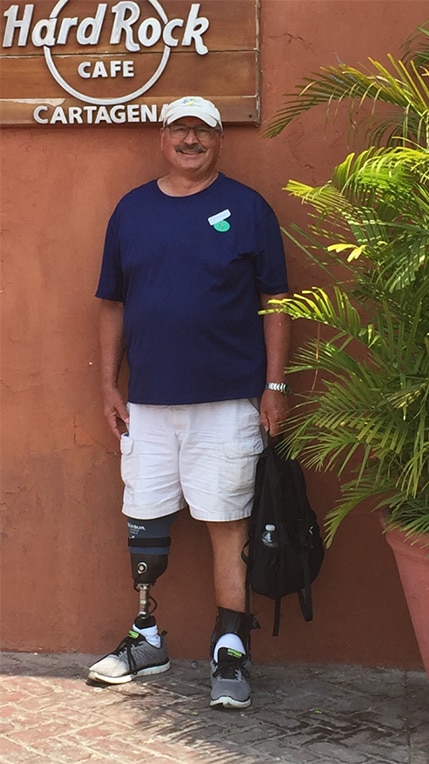 So, what is it that we amputees really want?
So, what is it that we amputees really want?
In 2011, at the age of 61, I developed Charcots disease. This is a disease where the bones in the foot crumble. Between 2011 and 2014, I underwent four foot surgeries. One was a reconstruction of the bones in my foot. Pins, plates, and screws. Spent most of my time in a cast or a crow boot. I felt like a stormtrooper. For three years I lived in constant pain, then my ankle started crumbling. The doctor suggested that he fuse the ankle bones.
Lucky for me, I was introduced to Gabe. He was a prosthetist who was also an amputee. I had the opportunity to ask him a whole bunch of questions about amputation and life afterward.
By this time I had had it. My quality of life was not good and I felt like I was a burden to my wife and family. This time I made the decision to have my right foot removed. It was a good decision on my part. The pain I had been living with had stopped. Sure, after the surgery there was healing and learning the new ways to do the things I previously did but it was worth it.
With the support of my wife Diane, whom I am very grateful for, my children and my God, I now live pretty closely to the way I did before this all started. In the past four years since my amputation, Diane and I have traveled to Italy, Portugal, Spain and the Panama Canal. Up until some recent back problems I was out playing golf. I’m not that good, but I wasn’t good before my surgery. I try to exercise at the gym three to four times a week. My buddy Gabe, who is my prosthetist, has been fantastic in building my prosthesis. Shout out to Gabe and all those at Yanke Bionics.
Often I ponder and reflect on the question, “What do I, as an amputee want? What do my brother and sister amputees want?”
I think we want a good quality of life. We know we can’t do everything but we would like to be able to do some of the things we did before we lost our limbs.
So as an amputee, how do we do this?
Here are my thoughts.
- Believe in the healing power of God
- Believe in yourself. Have a positive attitude.
- Don’t be afraid to push yourself.
- Make your prosthetist part of your team. Build a good relationship with him or her.
- Don’t be afraid to ask for help. Peer Visitors and the Amputee Coalition are a great resource.
- Seek physical therapy right after you get familiar with your prosthetic. You need to learn how to walk.
- Get involved in support groups and other amputees. It’s always good to share ideas.
- Stand up for your rights when dealing with the medical field and insurance companies. No is not an option!
- Laugh alot and be happy.You can make it happen and you can truly achieve “What you want.”

